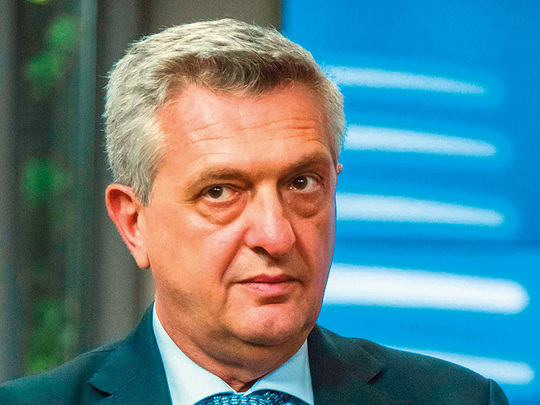
Sydney: The UN refugee agency accused Australia on Monday of reneging on an agreement to settle some vulnerable asylum seekers held in controversial offshore detention centres, but Canberra said no such agreement existed.
Australia takes a hard line on asylum seekers, with those intercepted at sea sent for processing at camps on the tiny South Pacific island of Nauru and Papua New Guinea’s Manus Island and told they will never be settled in Australia.
The UNHCR said Australia agreed to settle some of the near 2,000 men and woman held offshore in exchange for the agency helping facilitate a swap deal with the United States.
“We agreed to do so on the clear understanding that vulnerable refugees with close family ties in Australia would ultimately be allowed to settle there,” UNHCR High Commissioner Filippo Grandi said in a statement.
“UNHCR has recently been informed by Australia that it refuses to accept even these refugees.” A spokeswoman for Australia’s Minister for Immigration said no such agreement existed.
The swap deal, which involves the United States taking refugees from the offshore centres while Australia accepts refugees from Central America, is designed in part to help Australia empty the offshore facilities that have been heavily criticised by the UN and others.
US President Donald Trump earlier this year branded the swap deal “dumb”.
Australia’s bipartisan refusal to resettle any refugees held on Manus Island and Nauru continues to cause physical and psychological harm, and will deliberately and permanently split vulnerable families, Grandi said.
Grandi said Australia had failed to honour a “clear understanding” that vulnerable refugees held offshore with family in Australia could be reunited with them.
Australia is instead insisting that refugees held offshore must go to America — if accepted — or stay offshore.
Grandi said Australia must end its “harmful practice” of outsourcing its legal responsibilities to refugees to poorer countries in the region. “Australia’s policy of offshore processing in Papua New Guinea and Nauru ... has caused extensive, avoidable suffering for far too long,” Grandi said from Geneva.
“Four years on, more than 2,000 people are still languishing in unacceptable circumstances. Families have been separated and many have suffered physical and psychological harm.”
Between 12 and 20 refugees held on Australia’s offshore islands have close relatives currently living in Australia — including husbands, wives, children, siblings and parents.
A significantly larger number, however, have been split for medical reasons — where one or several family members have been moved to Australia after suffering serious injury or illness, while family members remain offshore.
Families will be permanently split by the policy shared by the Coalition and Labor. The unity and protection of the family unit is a fundamental principle of international law.
Last November, the UNHCR reluctantly agreed to assist in the relocation of refugees from Australia’s offshore islands to the US but Grandi said it did so “on the clear understanding” that vulnerable refugees with close family ties to Australia would ultimately be allowed to settle there.
“UNHCR has recently been informed by Australia that it refuses to accept even these refugees and that they, along with the others on Nauru and Papua New Guinea, have been informed that their only option is to remain where they are, relocate to Cambodia or to be transferred to the United States,” he said. “This means, for example, that some with serious medical conditions, or who have undergone traumatic experiences, including sexual violence, cannot receive the support of their close family members residing in Australia.” The UNHCR said that — in order to avoid prolonging the ordeal of those on offshore islands — it had been left with no other choice but to support the relocation of all refugees on PNG and Nauru to the US, even those who had close family members living in Australia.
“There is no doubt these vulnerable people, already subject to four years of punishing conditions, should be reunited with their families in Australia. This is the humane and reasonable thing to do.
“The Australian government’s decision to deny them this possibility is contrary to the fundamental principles of family unity and refugee protection, and to common decency.”
It is unusual for the high commissioner to personally comment on Australia’s asylum policies: Grandi’s previous comments have been on displacement and violence in Myanmar and large-scale forced migration in Africa.












